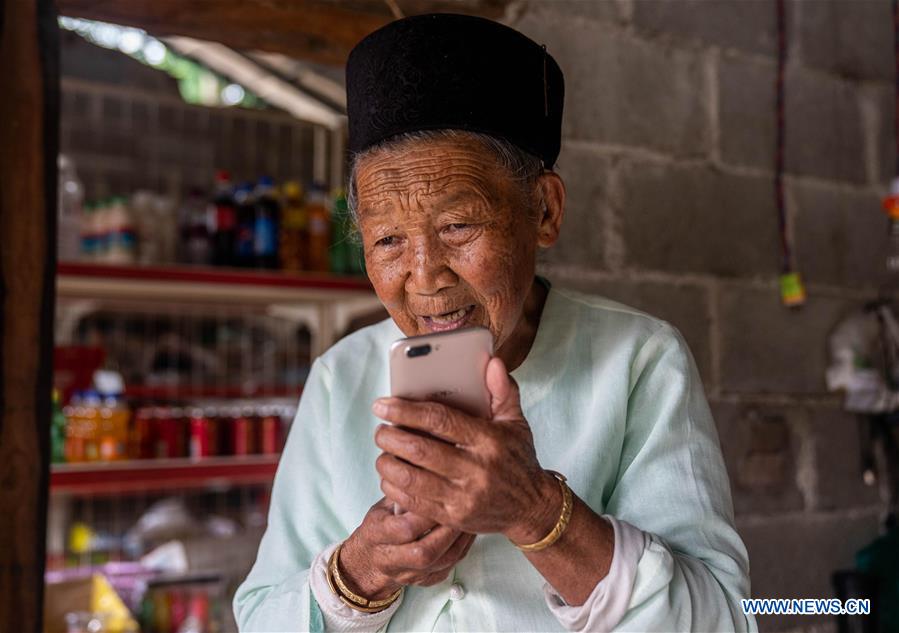
An elderly villager sings with her fellows via WeChat on a smartphone in Palian Village of Tengchong, southwest China's Yunnan Province, Aug. 17, 2020. (Xinhua/Hu Chao)
China is taking steps to help senior people deal with inconveniences they may encounter in their daily life, including using the internet and making a payment on a smartphone, skills they need to learn in order to better adapt to the digital era.
Since many do not know how to use a health QR code, a way to indicate their health status, some elderly people without these codes were rejected by public transportation when the country was in a fight against the COVID-19 epidemic.
To help senior people bridge the “digital gap”, the General Office of the State Council released the Implementation Plan on Effectively Solving the Difficulties of the Elderly Using Smart Technology in November.
The plan requires the retaining of a traditional way of services for senior people in fields including transportation, medical services, cultural and sport activities, consumption and payment. It also bans the practice of rejecting cash.
The measures reflect a people-centered development philosophy, said Li Zhihong, deputy head of the policy research office of the National Working Commission on Aging (NWCA).
Official statistics indicated that by the end of 2019, the population in China aged 60 and above hit 254 million, but only 6.7 percent of the netizens were aged 60 or above by the end of March.
Gao Xiaojun, spokesperson for the municipal health commission of Beijing, disclosed that all medical institutions in the city will open a green passage to senior people for making an appointment and seeing a doctor by the end of the year. Currently, a QR code is still needed to prove one’s health status.
Some websites and apps closely related to senior people have been encouraged to upgrade for the convenience of senior people, said Sui Jing, an official with the Ministry of Industry and Information Technology.
The plan also requires relevant parties to help senior people identify and stay vigilant on Internet security risks, enhancing their awareness of protecting personal information.






